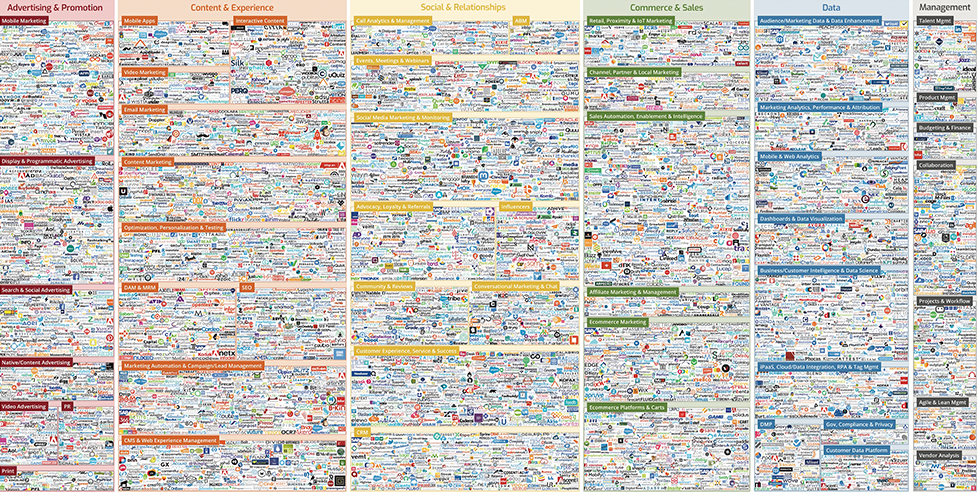Great, another platform to manage your workflow. Yet here my team is two and a half years down the line, about to push a version of our CRM that will improve its UX.
We’re bootstrapping the whole way. Keeping the lights on by freelancing web dev projects by day, so we can work on the CRM at night. No big-time investors (though we’ve tried), no fancy tech incubators to guide us. Despite this, I also understand what we’re up against. There are nearly 700 CRM systems to choose from at the time of this writing.
How have current CRMs and the tech industry failed business?
From an old-school business standpoint – the fact that there are so many CRM/project management software platforms to choose from tells me that nobody has created a solid system that the world likes. It also tells me that the space is ripe for consolidation. Through countless interviews with business owners and hours of research, the following three scenarios are how an average business, large and small, is conducting itself with software every day:
#1 Most businesses or teams have several apps to complete a single workflow. (we call this ‘platform exhaustion’)
#2 Many teams and employees make notes on other platforms, programs, or in physical notebooks outside of the app intended for their business’ workflow. (Causing you to later ask; “Where the f* did I put that?”)
#3 Many teams use Excel for task or project management.
Any of these sound familiar? Are you writing them down in your notebook?
Of the three, the biggest problem is Excel. Excel is one of the most mismanaged software systems in the world and detrimental to many projects. Right now, at the time of this writing, there is a £60 billion infrastructure project in the UK that runs mostly on excel – and not that efficiently either. It gets bigger than that. The NHS delivers most of its projects on Excel. In 2020, they had a large amount of Covid data go missing because of an excel glitch. Why don’t they use MS Dynamics? Too expensive and very complicated I’m told. What about Monday, Trello, Asana etc? Apparently, teams find these just lead to an overwhelming amount of lists – which require departments to hire someone to manage the list. The point of these systems is to lessen labor hours.
Why has this happened?
Simply because the tech industry is too busy creating software for software’s sake. They try to bring businesses into their way of thinking rather than from a business-first approach. SaaS is just like any other business but without as much burden of COGS. When creating any SaaS it has to solve a problem for people.
The problem business has with many CRM or project management platforms is:
#1 The software isn’t intuitive enough. If the user has to read documentation to understand how to use the system, you should start planning to give away a copy of MS Excel with that monthly subscription. The number one sentiment I hear again and again is “Will my team understand this? Do we all need to be trained on this?”
#2 The software doesn’t address their workflow. If you’re building a SaaS for business, components are your friend. Users need to be able to easily add components to the system so it can reflect their workflow.
How do you find the best CRM or PM software for your business?
Bookable is working on it. Meanwhile, if you have questions about growing your business, join us on our discord channel


